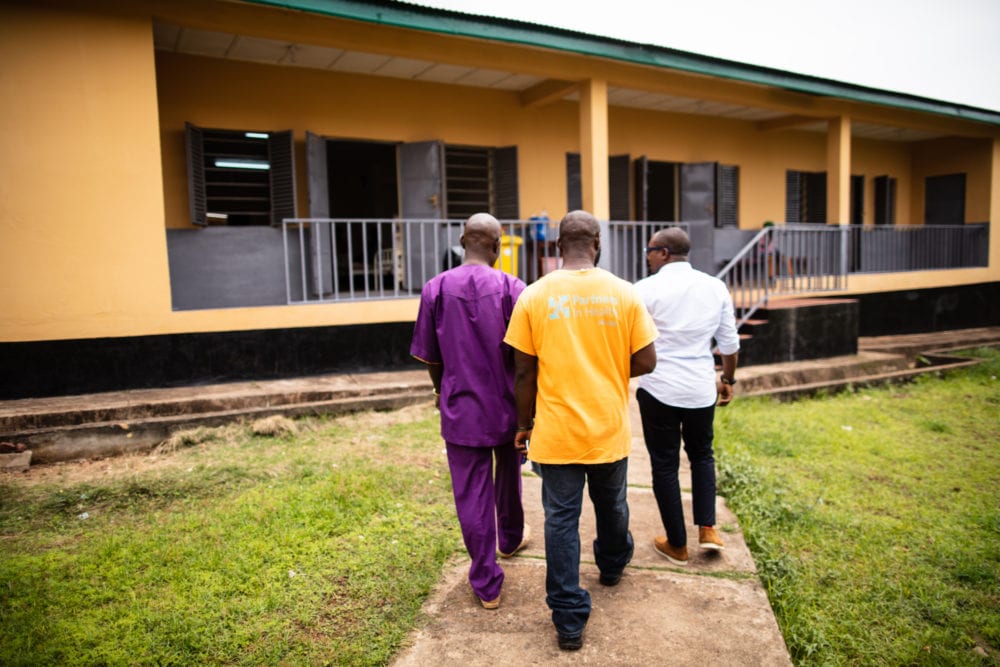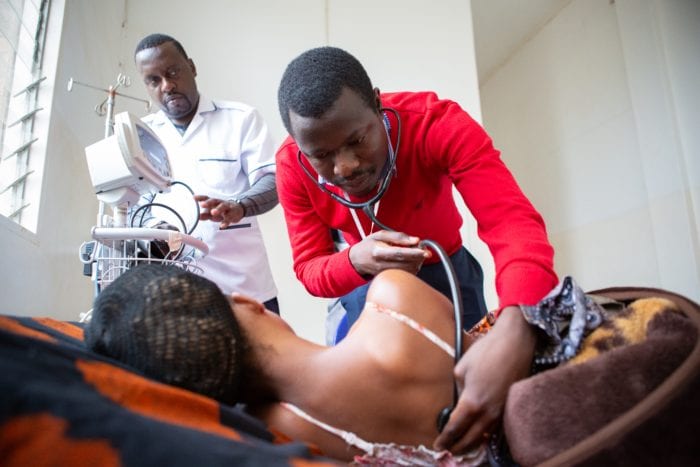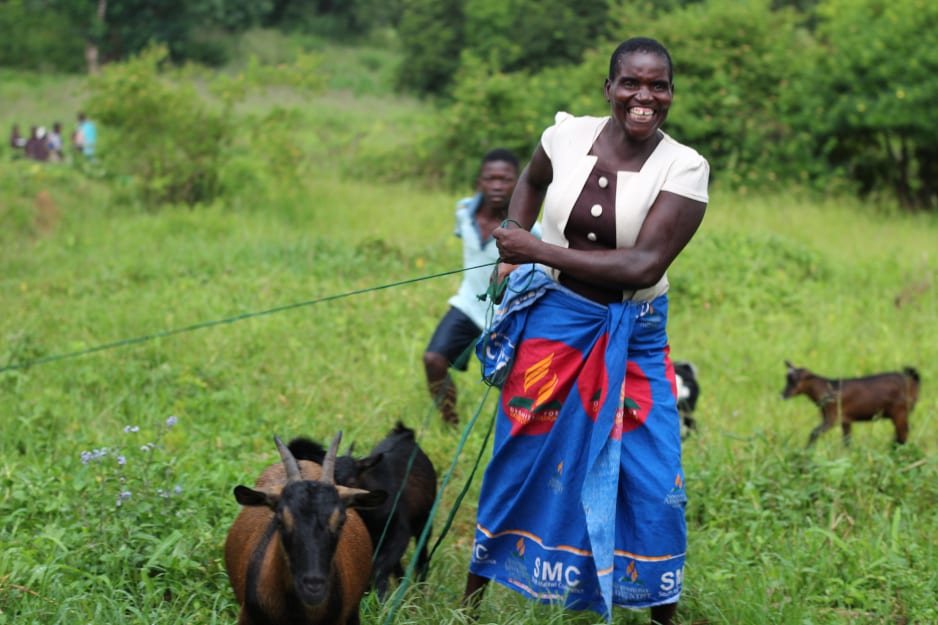Rwandan social workers receive nutrition training to fight malnutrition
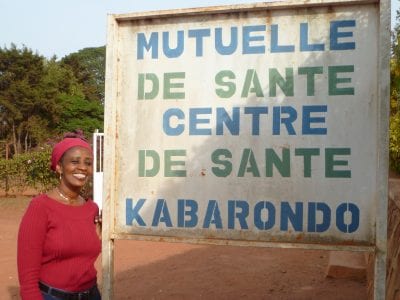
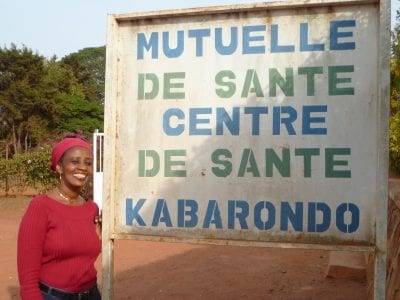
Sylvie Umubyeyi, a Social Worker at Kabarondo Health Center in South Kayonza,
Rwanda, says training in nutrition has helped her see the connection between
nutrition and overall health.
Sylvie Umubyeyi has been a social worker at Kabarondo Health Center in Kayonza District in eastern Rwanda for five years. She studied social sciences in secondary school and began working as a social worker in 1990. At Kabarondo Health Center, Umubyeyi is responsible for the social services activities and the malnutrition program.
Umubyeyi got a big boost in her nutrition skills by attending a training session on the Outpatient Management of Malnutrition in Children Under Five Years Old, sponsored by All Mothers and Children Count (AMCC), a program which is co-funded by PWRDFand Global Affairs Canada. Part of the training was learning the national protocol for treating malnutrition and how to calculate z-scores – the criteria used to assess growth for children — which is key to diagnosing malnutrition.
“Before the training I had a problem with differentiating different types of malnutrition – acute, severe, chronic – but after the training it became clear how to differentiate them,” says Umubyeyi. “I am now able to understand the treatment for malnutrition and I can see a difference in the patients who I am treating. The calculations of z-score during the training was difficult, but after the training I feel more comfortable calculating z-scores and classifying malnutrition.”
Participants spent a day learning about the types of foods that should be fed to children under five to prevent and treat malnutrition. They heard about different food groups, the benefits of a diverse and colourful diet, and introducing complementary foods after the period of exclusive breastfeeding. “Through this training I am able to learn about different types of food and how to combine foods to have a balanced diet,” says Umubyeyi. “In the past I did not know how to do this, but I learned the steps in how to prepare a nutrition education session.”
Umubyeyi described an education session on food groups she recently presented at the malnutrition clinic at her health centre: “I gave an example of foods from each food group. For energy foods I told caregivers they can prepare cassava and for body building foods I gave the example of beans. For protective foods that give vitamins and minerals, I gave the example of fruits and vegetables. If you combine those three groups you can have a balanced diet. I didn’t do this type of nutrition education before the training.”
The AMCC program is also providing resources for social workers from health centres to conduct home visits to malnourished children enrolled in the program. Before the AMCC program, Umubyeyi was only able to do home visits for those children living close to the health centre. “But now for those families who live very far from the health centre it is possible to take a motorbike to visit those families,” she says.
During a home visit, Umubyeyi meets with the family to discuss various topics related to malnutrition. “The causes of malnutrition are complicated. It can change depending on one family to another. Some have issues of behaviour changes, hygiene, family problems, poverty – it changes from family to family.” Therefore, she tailors each visit to nutrition education and counselling that is applicable to that family. If she sees that the family does not have a kitchen garden, she will provide education on how to start one. If she sees that there is no place for hand washing, she will discuss the importance of hygiene in preventing malnutrition. “I think the home visits will help patients recover more quickly from malnutrition, especially to help with education and behaviour changes. I hope to do two home visits per month now that there is the money to go.”
Umubyeyi’s manager, Innocent Kalisa, Vice Titulaire or Vice Head of Health Centre, is supportive of the training: “It will be good if staff continue receiving training because in a medical career there is a need for training since things are changing all the time. People need to be updated on new things, because if you stop learning you forget things, but when you are always learning you provide better care.”
_______
Katie Beck, MPH, RD, is the Nutrition Technical Support Fellow at Partners in Health in Rwanda.
From: http://pwrdf.org
